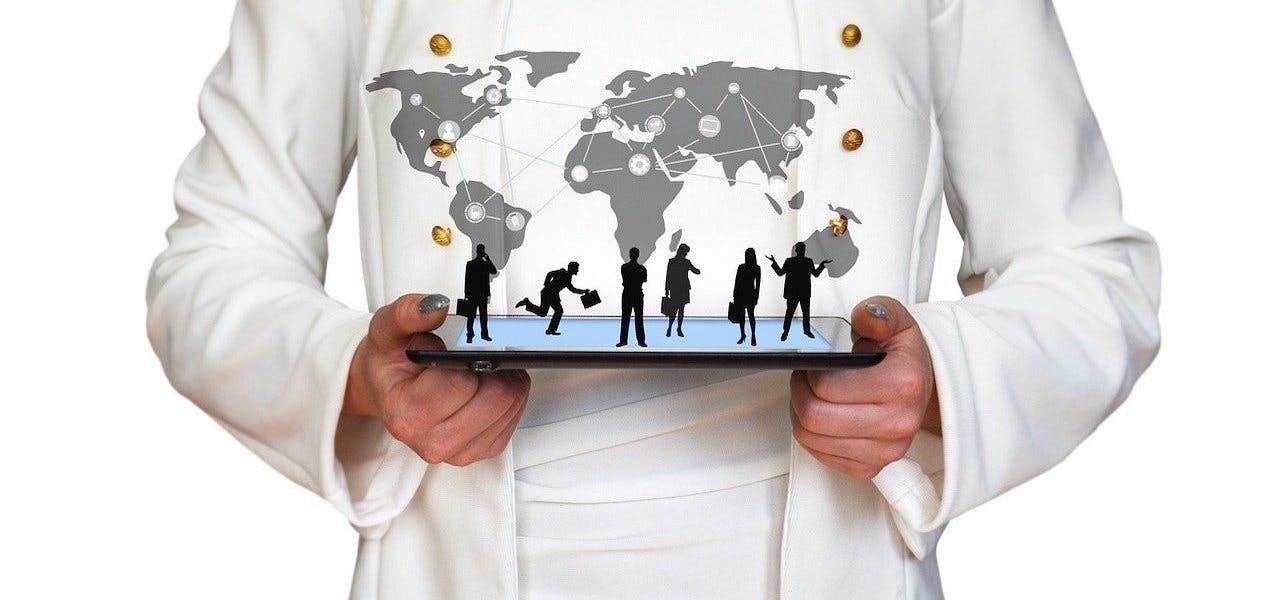With the Digital Era bringing so many innovative approaches to research with it, the landscape of academic exploration has changed dramatically. One of these adaptations is the evolving practice of international collaboration amongst researchers. The idea of multiple people with differing backgrounds, ethnicities, and scopes of expertise working together on the same topic with identical goals has been proven to have significant advantages, helping researchers to see a clearer, larger picture, and delve into deeper, more meaningful outcomes.
But international partnerships that are forced between universities and industries, as beneficial as they are, still must adhere to government standards and regulations regarding travel, as well as the effects of long-distance, long-term travel on the individual researcher and their families. These barriers frequently prove to be obstacles to academic collaboration and must be recognized to be overcome.
Benefits of Collaborating Together
The benefits of international collaboration are continually being recognized more fully by governments and institutions around the world. There is a positive correlation between cross-discipline researchers, particularly those from different countries and backgrounds, and improved quality of research outcomes with higher impactfulness.
Studies show that distance collaboration is even impactful in creating better outcomes than an individual researcher working on a project themselves, or with other team members with similar backgrounds and focus expertise.
Part of this increases when researchers collaborate with others who have access to institutions, libraries, and labs with more extensive resources and advanced equipment.
Teams consisting of researchers with differing viewpoints, cultures, and expertise, when successfully using those differences to their advantage, are able to approach their research with unique ideas. Since individuals all have strengths and weaknesses, when a team is able to work together and collaborate effectively, the weaknesses are lessened by others in the group who are able to take up that leg of the work. In addition, each layer of research can be delved into with more depth because there are more people with their own strengths who can break up the work meaningfully, choosing their preferred areas of analysis and approaching the tasks with a more masterful mindset. For instance, when one researcher must interview participants, but that researcher is not comfortable with the job, it’s easy to influence the interviewee with subconscious bias. But another person on the team may be able to step more easily into that role, making it a cleaner and more thorough interview.
Technology such as social networking makes it simple for these teams to communicate their thoughts and findings and thus take advantage of these benefits, but to fully complete the work, particularly when the research is societal and interaction with target pools of participants is necessary, requires international travel.
Challenges to Academic Collaboration From International Travel
International travel is inherently strict, whether it’s for academic research or leisure. Individuals who need to travel to another country in order to collaborate with their team on a project face challenges like:
● Applying for visas in areas where the passport isn’t enough to get them into the country, ensuring they have the proper documentation to stay the required length of time, and waiting for approval in a timely manner so as not to affect the timeline of the research project
● Getting their travel expenses approved by the funding source, or paying out of pocket for necessities that are not included in the grant or by the funder, then waiting for the reimbursement if it is approved later
● Taking time off from their jobs, since most researchers balance their time in the labs with teaching in classrooms
● Taking time away from their families for extended periods, requiring their partner to take on all the responsibility of caring for young children when applicable, as well as the other aspects of running a family
Because of these challenges, it’s often difficult for a researcher to make the decision to work on an international collaborative team. Those that do tend to have fewer responsibilities to tie them down or are able to be flexible with the responsibilities that they do have.
International Collaboration is Made Easier With Impactio
Before any government or relationship challenges are brought into the picture, researchers collaborating on international levels face the obstacle of communicating with each other. This challenge is overcome when everyone uses Impactio as their program of choice to compile their research and communicate regularly.
Impactio’s all-in-one program connects users with a large network of experts around the world, including the research team members. Teams can collaborate on determining the research approach, collecting, sharing, and compiling data, and determining the final outcome. Submitting the final product for publication is a breeze with Impactio’s easy to use platform.
Studies show that working as a team is more beneficial and impactful than individual research, and using Impactio when you’re collaborating makes every part of the job more effective.
